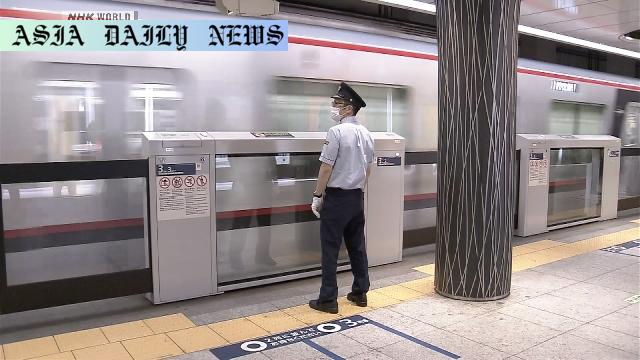Dress Code: Railway and airline workers in Japan now enjoy relaxed dress code rules, enhancing comfort and efficiency.
Japanese transportation companies ease dress codes for staff.
Railway and airline staff are now allowed to wear black sneakers.
Dress code changes aim to reduce physical stress among employees.
Other changes include optional neckties and lighter hair colors.

The Evolution of Workplace Norms in Japan
In recent years, modern workplaces around the globe have been transitioning towards employee-centered policies, and Japan’s transport sector has joined the global wave with a groundbreaking update to their dress code policies. Recognizing the tough physical demands of their jobs, major railway operators like Tokyo Metro, alongside airlines such as Skymark and Airdo, are challenging traditional formal attire norms by welcoming sneakers and lighter, more functional options for employees.
This movement towards comfort is not just superficial but plays a critical role in improving workplace efficiency and worker well-being. Tokyo Metro, one of Japan’s leading subway operators, took a major step effective May, allowing their employees—including station staff, train drivers, and platform workers—to switch from stiff leather shoes to comfortable black sneakers. This decision followed extensive discussions about reducing the physical strain faced by workers often required to stand for long hours or navigate the challenging environments of busy train tracks during emergencies. Research shows that more comfortable attire can lead to better workplace morale, fewer injuries, and higher productivity rates, making this policy change not only employee-focused but economically beneficial.
Comfort Meets Professionalism
In addition to sneakers, Tokyo Metro’s revised policies also include making neckties optional, signifying a move away from rigid traditional formality in favor of workplace practicality. Female employees have also been granted the flexibility to dye their hair lighter colors, reflecting a growing focus on inclusivity and personal expression. The leadership at Tokyo Metro emphasized that these changes came after employees voiced concerns about outdated regulations, underscoring the importance of listening to the modern workforce and adapting policies to suit the times. Such proactive measures reflect Tokyo Metro’s commitment to balancing tradition with modern needs, showcasing how companies can achieve both employee satisfaction and operational effectiveness.
Aviation Sector Pioneers Human-Centric Policies
Following in the footsteps of the railway sector, Japan’s aviation industry is also embracing change. Budget airline Skymark Airlines rolled out similar benefits for their flight attendants and ground staff starting in April, permitting the use of sneakers to ensure all-day comfort during demanding schedules. Another carrier, Airdo, piloted this initiative for their ground staff in July, testing how such alterations benefit overall performance. These moves signal a growing recognition across Japan’s employment landscape that traditional standards can often hinder productivity and employee health.
For employees accustomed to rigid workplace structures, these developments not only improve physical comfort but also empower them to embrace a more authentic appearance in the workspace. For passengers and clients, such changes may seem minor, but the resulting improved morale and energy among staff can lead to higher service satisfaction.
A Cultural Shift in Japan’s Work Environment
Japan has long been admired for its discipline and high work ethic veiled in formality. However, as the global workforce progresses, it’s imperative for nations like Japan to modernize traditional systems while maintaining their cultural ethos. The relaxed dress codes signal a promising step towards balancing tradition with the evolving needs of a modern workforce. Companies like Tokyo Metro and Skymark are creating a benchmark for other industries by showing that progressiveness and productivity are not mutually exclusive but rather complementary forces in building a sustainable workplace.
In conclusion, these changes reflect how Japanese companies are adopting human-centric policies that focus on improving the work experience. The intervention into dress code norms, starting with something as simple as allowing sneakers, could catalyze much-needed cultural reform for balancing tradition and modernity in corporate Japan. This approach could serve as a model for global industries while redefining Japan’s esteemed workplace culture.



Commentary
A Much-Needed Step in the Right Direction
The decision by Japan’s railway and airline operators to ease workplace dress codes is a remarkable example of forward-thinking leadership. Employees spend an overwhelming majority of their waking hours at work, and the traditional, often rigid formal attire has remained a silent barrier to comfort and productivity. Allowing sneakers for railway staff, who are constantly on their feet, and for aviation professionals, who work long shifts under high levels of stress, is not just pragmatic but essential for their well-being.
While the changes might seem minor on paper, their symbolic importance cannot be underestimated. For a country like Japan, known for its adherence to tradition, making adjustments to such deeply ingrained practices reflects an acknowledgment of the changing times. It is heartwarming to see companies such as Tokyo Metro listening to staff concerns and using their feedback to shape policy changes. The necktie-optional rule and the allowance for personal expression through lighter hair colors offer employees the opportunity to embrace individuality while staying professional. These steps not only enhance physical ease but also foster mental well-being, a critical aspect often overlooked in corporate discussions.
Encouraging Cultural Change Through Policy
This move could potentially inspire broader cultural shifts in Japan’s workplace environment. By prioritizing employee comfort and acknowledging the importance of modernizing age-old traditions, companies set an excellent example for others to follow. The policy revisions also indicate the beginning of an essential conversation about the balance between tradition and innovation, which is vital as we move deeper into the 21st century. Such steps are proof that even established industries can embrace change without compromising their standards or efficiency.
I hope this trend continues and inspires industries worldwide to rethink outdated norms that hinder employee satisfaction. Modern workplaces should nurture adaptability, and Japan’s efforts highlight just how transformative small changes, such as sneakers, can be. Ultimately, prioritizing the human aspect of a business will lead to happier employees, better service, and more sustainable organizational growth.